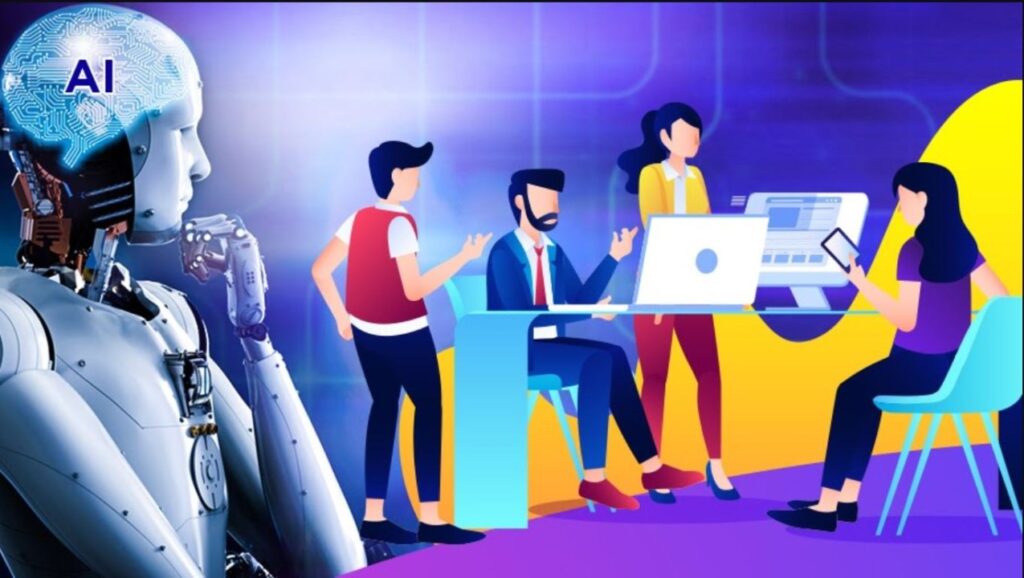In the rapidly evolving world of personal and professional development, coaching stands as a beacon of guidance, driving individuals and organizations toward their goals. Traditionally, this process has been intensely personal and human-centric, relying on the unique abilities of coaches to understand, motivate, and guide their coachees. However, the advent of artificial intelligence (AI) is reshaping this landscape. The rise of AI-powered coaching tools is not only augmenting the capabilities of human coaches but also democratizing access to coaching, making it more accessible, affordable, and tailored to individual needs. This blog delves into the transformational impact of AI on coaching, exploring how it’s being integrated and the benefits and challenges it presents.

AI-powered coaching tools
The Emergence of AI in Coaching
The integration of AI into coaching marks a significant shift in how coaching services are developed, delivered, and experienced. AI-powered coaching tools leverage machine learning, natural language processing, and other AI technologies to provide personalized coaching experiences. These tools range from chatbots that offer instant, on-demand advice to sophisticated platforms that analyze speech and written words to offer insights into emotional states, communication styles, and even leadership qualities.
Enhancing Personalization with AI
One of the most profound impacts of AI in coaching is the unprecedented level of personalization it can offer. Traditional coaching methods, while effective, often rely on more generalized approaches that coaches adjust based on their interactions with clients. AI, on the other hand, can analyze vast amounts of data about an individual’s behavior, preferences, and performance to tailor coaching strategies and feedback with remarkable precision.
For example, AI-powered tools can track an individual’s progress over time, adapt coaching strategies based on their evolving needs, and even predict potential obstacles before they arise. This level of customization was previously unimaginable and represents a significant leap forward in making coaching more effective and impactful.
Scaling Coaching with AI
Accessibility and scalability have long been challenges in the coaching industry. High-quality coaching has often been a resource available only to those at the top of corporate structures or those who could afford personal coaches. AI is changing this dynamic by enabling scalable, affordable coaching solutions that can reach a broader audience.
AI-powered coaching apps and platforms allow individuals at all levels of an organization to access coaching when they need it, regardless of geographical location or time constraints. This democratization of coaching has the potential to foster a culture of continuous learning and development across entire organizations.
Complementing Human Coaches
While AI brings many advantages to the coaching field, it’s essential to view it as a complement to, rather than a replacement for, human coaches. The nuanced understanding, empathy, and interpersonal skills that human coaches bring to the table are irreplaceable components of the coaching process. AI tools can free up human coaches from administrative tasks, provide them with data-driven insights into their client’s progress, and allow them to focus more on strategy and relationship-building.
Moreover, the combination of human and AI coaching can cater to a broader range of learning preferences. Some individuals prefer the anonymity and instant feedback of AI tools for certain aspects of their development while still valuing the depth and personal connection of human coaching for others.
The Challenges and Ethical Considerations
As with any technological innovation, integrating AI into coaching comes with its set of challenges and ethical considerations. Data privacy is a paramount concern, especially when sensitive personal and professional information is being analyzed and stored by AI systems. There’s also the risk of over-reliance on technology, where the human element of coaching could be undervalued or overlooked.
Addressing these challenges requires a careful balance. Ensuring robust data protection measures, maintaining transparency about how AI tools work and their limitations, and fostering a culture that values the human aspects of coaching alongside technological advancements are all crucial steps.
The Future of AI-Powered Coaching
Looking ahead, the potential of AI-powered coaching tools is vast. As AI technology continues to evolve, these tools will become even more sophisticated, offering deeper insights and more personalized coaching experiences. We might see the emergence of AI coaches with advanced emotional intelligence capabilities capable of detecting subtle nuances in tone and body language to provide even more nuanced feedback.
The ongoing development of AI in coaching also opens up exciting possibilities for lifelong learning and development. With accessible, personalized coaching tools at their fingertips, individuals can continuously cultivate their skills and adapt to the ever-changing demands of the professional world.
The rise of AI-powered coaching tools represents a revolutionary shift in the coaching industry. By enhancing personalization, accessibility, and effectiveness, AI is augmenting the capabilities of human coaches and making coaching more inclusive. As we navigate this new landscape, the synergy between human insight and AI’s analytical power will be key to unlocking the full potential of coaching in the digital age.
This evolution, however, must be approached with a mindful consideration of the ethical implications, ensuring that the human element of coaching is preserved and cherished. In doing so, we stand on the brink of a future where coaching is more impactful, accessible, and tailored to the needs of every individual, powered by the intelligent application of AI.

